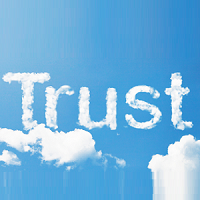 When Things Go Right, Great; When They Don’t, Trust
When Things Go Right, Great; When They Don’t, Trust
Recently, I traveled solo from Philadelphia to Salt Lake City and back. Unlike many travel experiences, this time I had the good fortune of encountering no security lines, no flight delays, room for my carry-on luggage, and early arrivals. In fact, everything went so smoothly that I hardly noticed anything at either airport beyond the gates themselves. I didn’t notice if anyone was being particularly nice or nasty, rude or friendly, helpful or indifferent. It didn’t matter, because everything went right. I paid no attention to the airport amenities, facilities, or even the bathrooms. So enthralled was I by how smooth my travels went, nothing else mattered. But that’s more the exception than the rule.
The experience stood out because it was unusual, and in some ways it was almost the opposite of how it’s only when we get sick that we truly appreciate being healthy. And when we do get sick, we turn to trusted professionals to help us get better. And the key word is trust. We trust that they care about us. We trust that they are concerned about our well being. We trust that they will offer guidance as to how to feel better. But that’s our health. What about in our businesses and organizations?
In the travel world (and in other business settings) we anxiously hope all will go smoothly because often times (and for very legitimate reasons) it does not. What happens when thing don’t go as planned or as expected at work? Do our customers, clients, and employees trust us to get it right? Are we communicating with them in such a way that we are building trust? Have we properly prepared to be trusted? As one of the three pillars of exceptionally human communication (the others being emotions and reason), building trust allows others to turn to us with the confidence and assurance. So start building that trust through how you communicate with others, how you interact with others, and how you respond to others. Doing so will begin to alter expectations, so it’s not remarkable that things don’t wrong, but how well things go when they do go wrong.

